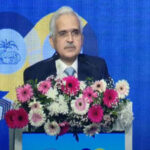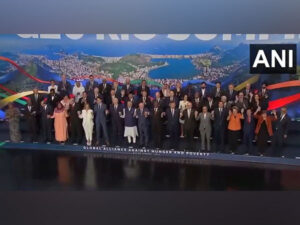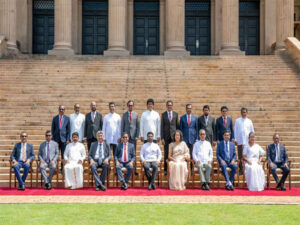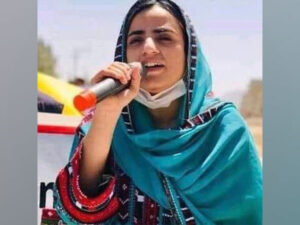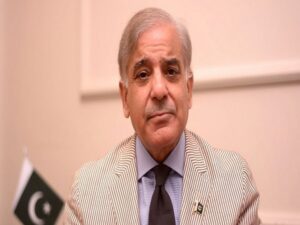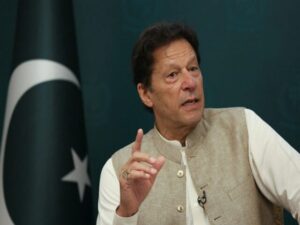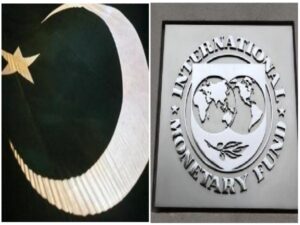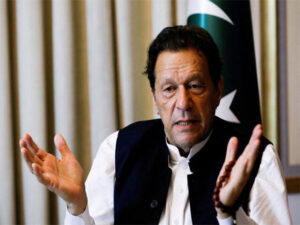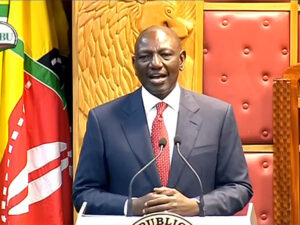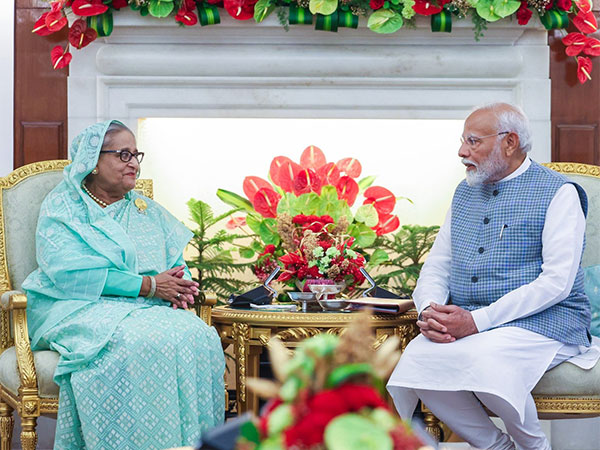
New Delhi [India], June 23 (ANI): India and Bangladesh have reiterated their commitment to a free, open, inclusive, secure, and rules-based Indo-Pacific region. The two nations pledged to co-lead the Disaster Risk Reduction and Management pillar of the Indo-Pacific Oceans Initiative (IPOI) and cooperate to mitigate disaster risks.
A joint statement was issued following the meeting between Prime Minister Narendra Modi and his Bangladeshi counterpart, Sheikh Hasina, during the latter’s two-day State visit to India.
The joint statement released by India and Bangladesh reads, “Recognizing the contribution of our partnership to peace, security and stability in the region, we reiterate our commitment to a free, open, inclusive, secure, and rules-based Indo-Pacific region.”
“Based on our converging visions for the Indo-Pacific region and recognizing the vulnerability of the region to adverse impacts of climate change, we will co-lead the ‘Disaster Risk Reduction and Management’ pillar of the Indo-Pacific Oceans Initiative (IPOI), and cooperate to mitigate disaster risks, build disaster resilient infrastructure, and contribute to the sustenance of our shared maritime region,” it added.
The two nations pledged to work together on global platforms to promote their common interests, particularly those of the Global South.
“With our wide-ranging bilateral cooperation, we also envision India–Bangladesh relationship to become a major anchor for regional and sub-regional integration under the BIMSTEC, SAARC and IORA architectures. We will work together on global platforms to promote our common interests, especially the interests of Global South,” the joint statement said.
According to the joint statement, India and Bangladesh need to take the relationship to a “deeper and higher quality relationship” based on mutual trust and benefit in the coming days.
India and Bangladesh committed to strengthening trade and investment linkages with each other, including through the early commencement of negotiations for a Comprehensive Economic Partnership Agreement (CEPA), the early operationalization of two Special Economic Zones (SEZs) offered by Bangladesh to India in Mongla and Mirsharai, the opening of new border-haats, trade facilitation to enhance bilateral trade, and improving road, rail, air, and maritime connectivity.
The joint statement reads, “Resolving to work towards promoting the prosperity of our people, we will strengthen trade and investment linkages with each other, including through early commencement of negotiations for a Comprehensive Economic Partnership Agreement (CEPA), early operationalization of two Special Economic Zones (SEZs) offered by Bangladesh to India in Mongla and Mirsharai, opening of new border-haats, trade facilitation to enhance bilateral trade, improving road, rail, air, and maritime connectivity and trade infrastructure which can transform our geographical proximity into new economic opportunities for our peoples. We will also encourage and support our private sector to seek new investment opportunities in each other’s priority areas of economic development.”
India and Bangladesh agreed to strengthen defence cooperation with a long-term perspective. The two sides will continue to work together for multifaceted military engagements of exercises, training and capability development.
The joint statement reads, “Appreciating the significant role of the two countries in ensuring peace, stability and harmony in the region, we will strengthen our defence cooperation with a long-term perspective.”
“In line with the plans for modernization of the Bangladesh Armed Forces, we will explore defence industrial cooperation for modernization of the Armed Forces of Bangladesh, to strengthen their capability for defence. We will continue to work closely with Bangladesh for our multifaceted military engagements of exercises, training and capability development,” it added.
Considering the importance of water resource management in our bilateral relationship, the two nations continue to engage in prioritising the exchange of data and formulating the framework for interim water sharing based on the recommendations of the Joint Rivers Commission.
India and Bangladesh welcomed the formation of a Joint Technical Committee to initiate discussions for the renewal of the Ganges Water Sharing Treaty of 1996, according to the joint statement.
The joint statement further reads, “As part of our development cooperation, we will also undertake conservation and management of Teesta River inside Bangladesh with Indian assistance within a mutually agreed timeframe.”
On June 21, Bangladesh PM Sheikh Hasina arrived in India on a two-day State visit at the invitation of Prime Minister Narendra Modi. The newly appointed Minister of State (MoS) for External Affairs, Kirtivardhan Singh, welcomed the visiting Bangladesh PM at the airport upon her arrival.
This was the first incoming bilateral State visit after PM Modi assumed office for the third consecutive term following the Lok Sabha elections. Notably, Sheikh Hasina was among the global leaders who attended the swearing-in ceremony of PM Modi on June 9. (ANI)
India, Bangladesh pledge to pursue collaboration in space technology, oceanography
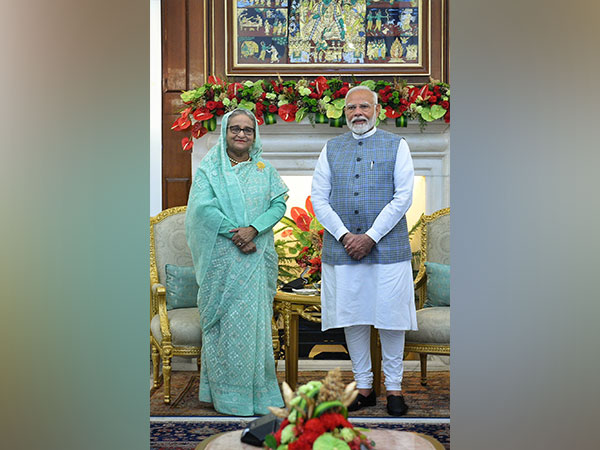
New Delhi [India], June 23 (ANI): India and Bangladesh have committed to pursuing collaboration in frontier technologies, including nuclear, oceanography, and space technology. The two nations will partner in the joint development of a small satellite for Bangladesh and its launch using an Indian launch vehicle.
India will extend e-Medical Visa facility to people from Bangladesh travelling to India for medical treatment. India also agreed to open a new Assistant High Commission of India in Rangpur as a step to facilitate expeditious consular and visa services for the people of north-west region of Bangladesh.
Recognizing the importance of water resource management in bilateral relationship, India will continue to engage in prioritizing the exchange of data and formulating the framework for interim water sharing based on the recommendations of the Joint Rivers Commission.
As part of development cooperation, India will also undertake conservation and management of Teesta River inside Bangladesh with Indian assistance within a mutually agreed timeframe.
During Bangladesh Prime Minister Sheikh Hasina‘s State visit to India, the two nations announced forging a new paradigm for future-oriented partnership through a “Shared Vision for India–Bangladesh Digital Partnership” and a “Shared Vision for India–Bangladesh Green Partnership for a Sustainable Future” in line with their respective broader Vision of “Viksit Bharat 2047” and “Smart Bangladesh Vision 2041.”
The joint statement issued by India and Bangladesh reads, “Underlining the pivotal role played by emerging technologies to build inclusive, sustainable and digitally empowered societies and to bring larger benefits to people of both countries, we are forging a new paradigm for future-oriented partnership through a ‘Shared Vision for India–Bangladesh Digital Partnership’ and ‘Shared Vision for India–Bangladesh Green Partnership for a Sustainable Future’ in line with our respective broader Vision of ‘Viksit Bharat 2047’ and ‘Smart Bangladesh Vision 2041′.”
“These will build a transformative collaboration between India and Bangladesh by leveraging green and digital technologies to foster economic growth, sustainable and climate-resilient development, environmental conservation, cross-border digital interchange and regional prosperity. We will also pursue collaboration in frontier technologies, including civil nuclear, oceanography and space technology. To this end, we will partner in joint development of a small satellite for Bangladesh and its launch using Indian launch vehicle,” it added.
India and Bangladesh announced that they will strengthen trade and investment linkages with each other. The two nations also pledged to encourage and support the private sector to seek new investment opportunities in each other’s priority areas of economic development.
The joint statement reads, “Resolving to work towards promoting the prosperity of our people, we will strengthen trade and investment linkages with each other, including through early commencement of negotiations for a Comprehensive Economic Partnership Agreement (CEPA), early operationalization of two Special Economic Zones (SEZs) offered by Bangladesh to India in Mongla and Mirsharai, the opening of new border-haats, trade facilitation to enhance bilateral trade, improving road, rail, air, and maritime connectivity and trade infrastructure which can transform our geographical proximity into new economic opportunities for our peoples.”
“We will also encourage and support our private sector to seek new investment opportunities in each other’s priority areas of economic development,” it added.
The two nations pledged to continue expanding their power and energy collaboration and develop intra-regional electricity trade, including competitively-priced power generated from clean energy projects in India, Nepal and Bhutan, through the Indian electricity grid.
India and Bangladesh agreed to expedite the development of 765 kV high-capacity interconnection between Katihar-Parbatipur-Bornagar with suitable Indian financial assistance, to act as the anchor for grid connectivity. (ANI)




